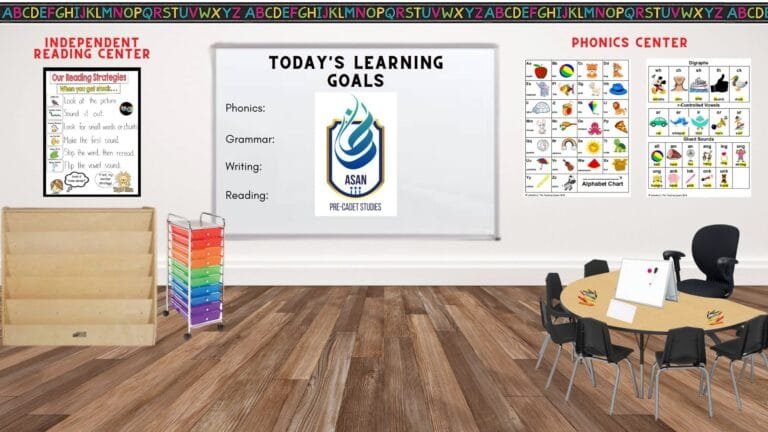Group Study: Importance, Advantages & Disadvantages in the Modern Era
Group Study: Importance, Advantages & Disadvantages in the Modern Era
Group study is not a new concept in education, but in today’s fast-paced and interconnected world, it has taken on greater importance. With digital learning platforms, online classrooms, and the need for collaborative skills in professional life, group study has become more relevant than ever. In this detailed article, we’ll explore what group study is, its role in modern education, its benefits, drawbacks, and practical tips for making it effective—especially for students preparing for competitive exams such as Cadet Colleges entry tests.
What is Group Study?
Group study refers to a collaborative learning approach where a small number of students come together to study, discuss, and solve academic challenges. Unlike self-study, where a student works individually, group study thrives on sharing ideas, debating concepts, and encouraging peer-to-peer teaching. It creates an environment of mutual support, accountability, and motivation.
Why Group Study Matters in the Modern Era
In the modern educational landscape, group study has gained significance due to several reasons:
- Collaborative learning: The world values teamwork, and group study helps prepare students for real-world collaborations.
- Digital integration: With tools like Zoom, Google Meet, and Asan Online Web Testing software, students can form virtual study groups, making collaboration easier than ever.
- Competitive exams: For Pakistani students aiming for Cadet Colleges, CSS, or medical entry tests, group study often provides structured practice and peer motivation.
- 21st-century skills: Group study builds critical thinking, communication, and leadership—skills that are highly valued in academic and professional life.
Advantages of Group Study
Group study comes with multiple advantages that make it appealing to students across all education levels:
1. Enhanced Understanding
When students explain concepts to each other, it deepens understanding. Teaching others is one of the most effective learning techniques, ensuring long-term retention.
2. Motivation and Accountability
Group study motivates students who may otherwise procrastinate. Knowing that others depend on your input keeps you accountable and committed to your study goals.
3. Exposure to Diverse Perspectives
Every student has a unique way of understanding and approaching problems. Group study allows exposure to different perspectives, which can enrich knowledge and problem-solving skills.
4. Improved Communication Skills
Group discussions sharpen communication skills. Expressing ideas clearly, listening actively, and debating constructively are essential life skills.
5. Stress Reduction
Preparing for exams can be stressful, especially competitive ones. Group study creates a supportive environment, reducing stress and boosting confidence.
6. Efficient Use of Time
Instead of spending hours stuck on a difficult concept, students can quickly get clarity from peers, making learning more time-efficient.
Disadvantages of Group Study
Despite its advantages, group study also has potential drawbacks if not managed properly:
1. Distractions
If group members lose focus, sessions can turn into casual chats rather than productive study sessions.
2. Unequal Participation
Sometimes, one or two students dominate discussions, while others remain passive. This imbalance reduces the effectiveness of group learning.
3. Different Learning Paces
Not all students learn at the same speed. Slower learners may feel left behind, while faster learners may feel held back.
4. Time Management Issues
Finding a suitable time for all group members can be difficult, especially with online classes and other commitments.
5. Risk of Misconceptions
If a concept is misunderstood and shared within the group, it may lead to collective confusion unless corrected by an expert or teacher.
How to Make Group Study Effective
To ensure group study sessions are productive, here are some practical tips:
- Set a clear agenda before each session (e.g., past papers, math formulas, essay writing practice).
- Assign roles: a discussion leader, a note-taker, and a timekeeper to maintain focus.
- Keep groups small (3–6 students) to allow active participation.
- Use online collaboration tools like Zoom, Google Docs, and Asan Online Web Testing software.
- Schedule regular sessions with defined goals (e.g., completing a chapter, practicing MCQs).
Group Study for Cadet College Preparation
For students preparing for Cadet Colleges in Pakistan, group study is especially helpful. Cadet College entry tests require not only knowledge but also speed and accuracy. By studying in groups, cadets can:
- Practice past papers together to simulate real test conditions.
- Clarify difficult concepts in math, English, and science.
- Compete in friendly quizzes to boost confidence.
- Build discipline and teamwork—qualities that are highly valued in cadet training.
At Asan Books and Asan Pre Cadet Studies, we encourage group study through structured learning, online test systems, and access to high-quality preparation books.
Group Study vs. Self-Study
While group study has its benefits, it is not a replacement for self-study. The ideal approach is a balanced mix of both. Students should use self-study for deep concentration and revision, and group study for discussion, clarification, and collaborative problem-solving.
Final Thoughts
“Alone we can do so little; together we can do so much.” – Helen Keller
Group study, when done effectively, is one of the most powerful tools in modern education. It not only enhances academic performance but also builds essential skills like teamwork, communication, and leadership. For cadets and other students facing competitive exams, group study offers an invaluable way to prepare, stay motivated, and succeed.
At Asan Pre Cadet Studies, we believe in combining the best of both worlds: effective self-study resources and collaborative group learning platforms. By leveraging these, students can maximize their potential and achieve their academic dreams.






